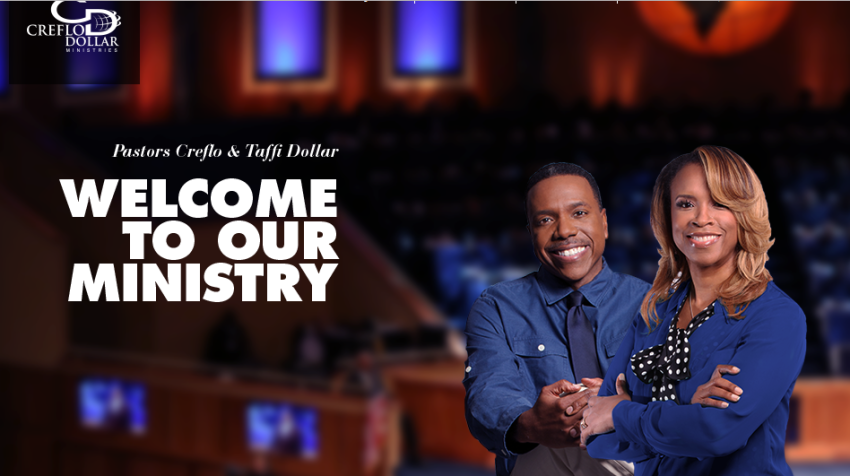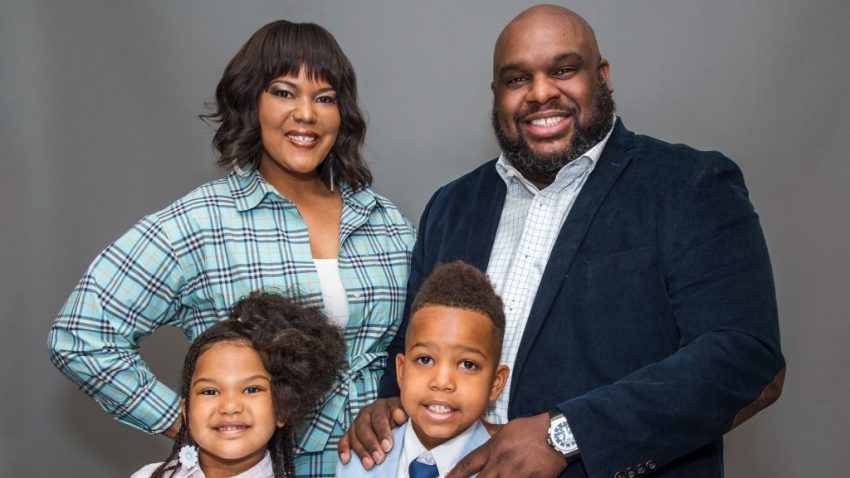Husband and wife co-pastors are trending, but scholars dispute whether it’s biblical

It’s been some seven years now since Pastor Marty Anderson and his wife Robin have been serving together as co-pastors of Commonwealth Baptist Church in Alexandria, Virginia, and everything, he says, has been copacetic.
“It’s equal,” he recently told The Christian Post about the power-sharing leadership structure between him and his wife.
“We also have a church council that helps lead the church as well. So when we have different ideas about the church, it’s not just us. We don’t have authority over the whole church. Our church is made up of a lot of leaders and a lot of leaders have to input and this Baptist church makes all the decisions for itself. They make the decisions of what pastors they want to have. They make the decision of how much we are going to budget.
“We give them direction and we help them and if we disagree on something we take it to our church council and we all work at it,” he said.
Marty doesn’t see himself as having any greater authority over Robin when it comes to leadership of the church and she likewise has no authority over him at the progressive Baptist church.
“Neither one of us has authority over each other. We’re more like a team,” he said. “I don’t have authority over her. I don’t make her cover her head. I don’t make her be silent and she doesn’t expect, demand anything from me.”
A few months ago, John Gray of Relentless Church in Greenville, South Carolina, who is listed with his wife Aventer as senior pastors on the church’s website called her a “covering.”
“I married a woman two sizes too big. I have to grow into Aventer. She’s a coat. I still can’t fit her. She’s bigger than me and she’s had to cover me while I grow up. I gotta grow into her. She’s a covering, not a lid. Because if a man marries a lid she’ll stop your dream. But if you marrying a covering, she’ll push you to your destiny. Let me tell you something, my wife has endured more pain birthing me than both of our children. She has sacrificed these last eight years, uncovering the painful areas of my manhood and covering the areas that could have exposed me,” he said in an interview on “Sister Circle” last fall.

While husband and wife co-pastoring teams like the Andersons and the Grays have been trending slowly at least over the last decade as a viable form of church leadership, theology experts dispute whether the model is supported by Scripture.
Midwestern Baptist Theological Seminary President Jason K. Allen, a Southern Baptist who is also a professor of preaching and pastoral ministry, argues that the Bible does not support that model of church leadership.
“You typically see that co-pastor set-up in more charismatic churches. In the SBC, you really never see the co-pastor setup when the co-pastor means that the wife would be preaching as well as exercising some sort of leadership, directional authority with the congregation,” he told CP.
Pastor’s wives, he said, are more likely to be functioning as an extension of the pastor’s work in areas such as hospital visits, discipling women and working as counselors.
He said the confessional statement of the SBC, which is the largest Protestant denomination in America, encompassing more than 45,000 churches, speaks to the office of the pastor or the lead elder “being reserved to qualified men only.”
“And that voice, that conviction, is taken explicitly from Scripture in places like I Timothy 3: 1-7, Titus 1: 6-9,” he said.
These two essential New Testament passages he said, speak the most clearly about who qualifies as a pastor or elder.
“It’s not a point that any man is qualified and any woman is not qualified to be a pastor. Rather, the Apostle Paul goes to great lengths, spelling out the qualifications not just being a man but a one woman man, not just being a man who’s only been married one time but a man whose heart and life is devoted only to his wife. There’s a whole list of character qualifications there,” he said.
“If you were to ask me in short why the Southern Baptists do not have husband and wife co-pastors it’s because the Southern Baptists believe (according to Scripture) that the office of the pastor, of a senior pastor, of an elder is reserved for qualified men only,” he said.
Churches that use a co-pastoring model that lifts wives up to act as leaders are acting contrary to Scripture, he argued.
“I would say churches that do that are taking a step beyond what Scripture permits, what Scripture calls us to and they’re choosing to operate in a way that is contrary to I Timothy 3,” Allen said.
He pointed out that more progressive denominations are not looking toward the New Testament for specific words of instruction that defines who is a minister. He also noted that some would note that Paul’s advice against women in leadership was a “first century cultural expectation.”
He argued, however, that the guidance isn’t limited to the first century and that “Paul himself roots his argument not in the first century but in the creative order of Genesis 1 and 2. That’s where Paul takes his argument in I Timothy 2. He takes it back to Genesis and to the creative order. People often misunderstand what evangelicals, Southern Baptists do and practice. Sometimes that leads to stereotypes and caricatures.
“The Bible believes in honoring women. The Southern Baptist Convention believes in honoring women. We have women in a whole host of roles. I’m president of a seminary. A significant portion of our student body is female. About 1/3 of our student body is females preparing for positions in ministry. But that step to be elder or to be pastor or co-pastor” he could not support.
“We don’t mandate what they can or cannot do after they graduate,” Allen noted.
Female students at the seminary, he said, are informed about what they can expect in Southern Baptist and other evangelical churches.
“We’d be doing a disservice to our students if we said ‘come study, spend a bunch of money on your degree and be ready to pastor a church when you graduate.’ We’d be misrepresenting to our female students what they should expect after graduation,” he said.
Most of the female students he knows at the seminary, he said, are studying to be missionaries, counselors or other ministry roles within the confines of their understanding of Scripture.
“They are not really studying for that pastoral leadership role,” Allen said.
The Rev. Cheryl J. Sanders, professor of Christian Ethics at the Howard University School of Divinity and senior pastor of the Third Street Church of God in Washington, D.C., challenged Allen’s argument that the Bible doesn’t support women in pastoral roles by pointing to the example of first century Christian husband and wife missionary couple, Aquila and Priscilla.
“They were a clergy couple that worked alongside Paul the Apostle. And the Bible says Aquila and Priscilla, they were together, they had the same vocation as Paul. Paul spoke very highly of them. When Apollos came preaching, he was a little erroneous in his preaching. It was Priscilla who pulled him aside and corrected him, mentored him and shepherded him to a better way of preaching,” Sanders said.

“The office of pastor is biblical, pastor is a shepherd. Not all the ways that we identify pastors, elevate pastors, employ pastors are biblical but the concept of a shepherd who teaches and nurtures the flock, that’s what a pastor is. A pastor, in my view, is not necessarily male or female. It is just a person who has the gift and the charisma, if you will, and the authority of the congregation to do that work of shepherding,” she argued.
She noted, however, that in many black churches, the idea of the pastor’s wife being referred to as “first lady” has complicated the true leadership roles that women can play in churches. A woman, she argued, should not be treated as a pastor simply because she is married to one.
“The complication is how we deal with marriage and ministry. And [in] many of our black churches, we have developed this notion of first lady. And so the wife of the pastor is the first lady of the church. But first lady nomenclature comes from the White House. The president of the United States always has a wife, at least historically … Somehow in the black church we decided that we wanted to give a title to the wife of the pastor we call first lady.
“I think co-pastor sometimes is just an evolution of that, [saying] OK, we’re going to give her a higher title, make her the co-pastor. Here’s my problem: if that woman is called to ministry and has the gift and the equipping to be a shepherd, there is no problem. But if she just has that position earned through the pastor then I see it in the same light as I see the first lady. It’s just something from the culture and people approve of it, and it’s a category that they want to identify with,” Sanders said.
“I would prefer that the co-pastor be authorized or ordained, credentialed, trained, equipped and given her assignment on the merits that she brings to the leadership position and not just by virtue of being the pastor’s wife."
She strongly opposed the Southern Baptist interpretation of women in leadership.
“I disagree with the whole Southern Baptist system on women in leadership. I think that your gender does not determine your eligibility to be a pastor. I believe if you are a co-pastor it’s because you are qualified to be a pastor whether you’re married or not and not just by virtue of the fact that you are married, that qualifies you to be a co-pastor; I don’t agree with that,” she said.
Anderson argued that the SBC’s interpretation of women in leadership is driven by their literal interpretation of the Bible, noting that it isn’t a rule book.
“The Southern Baptists read the Bible literally, and it has commandments but it’s not a rule book. It’s a book of faith and there are many stories of women, who have had the faith and followed Jesus, and have ministered to others,” Anderson said.
“Even Jesus’ whole ministry was really financed with women. … I’ve always looked at the Bible as where there is timeless information, then there is timed constructed information … and a lot of that is cultural.
“Titus and Timothy, Paul was just telling Timothy ‘this is how it has worked.’ It’s not saying that we don’t believe that women can’t be, that homosexuals can’t be. We are an open and affirming church and we believe that everybody is loved by God and is worthy of being loved by God, and is worthy to minister to people. And that’s Baptist principles right there, is called the ‘Saints of believers.’ We believe that everybody has a responsibility to be a minister in Baptist churches,” Anderson said.
“Robin and I, we work together. She has a perspective about God that I do not have so we believe that this can only benefit us. It can’t hurt us. It doesn’t mean that God’s gonna like send us to hell or anything. We look at the Bible as a book of faith, not as a bunch of rules,” he said.
“Southern Baptist Churches, there are no women pastors and the wives are there and their role is to support the ministry of the pastor. That is not what we’re about. Robin ministers to different people in our congregation than I do because some people are more drawn to Robin than myself, and then the other people come to me for pastoral care, spiritual guidance … and I totally support everything she does but we both have the same roles and we support each other in those roles,” Anderson noted.
Despite the growing trend of husband and wife co-pastors and women in more leadership roles in some churches, Allen argues that he doesn’t see the SBC shifting their position on women in leadership in the next 20-30 years.
“The church in every generation, every age faces a challenge of how we engage the culture, how do we impact the culture, how do we influence the culture without the culture influencing us. That’s a perennial challenge. I don’t think the SBC is going to turn inside out over the next 20 years over this gender issue because we are so clearly defined confessionally,” he said. “I do think churches, denominations that don’t know what they believe, they will be more secular … more open to female pastors.”
He noted, however, that churches that become more secular are “dying pretty rapidly.”
“I don’t think the antidote to secularization is to be more secular for the church. I think the church’s responsibility is to be prophetic, look to Scripture, to be gracious, humble and loving to our neighbors and be a loving but truthful witness to our neighbors. I think that’s more of a winning combination,” he said.



























